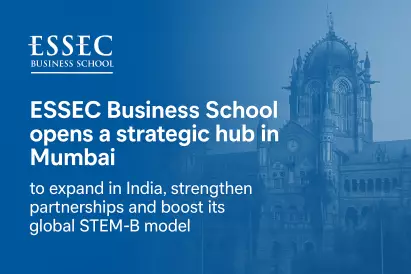Context and Market Overview for Corporate Communication Master’s Programs in Latin America
As of 2025, Master’s programs in Corporate Communication in Latin America exhibit moderate yet strategic growth. This trend is driven by shifting regional economic realities, rapid digital transformation, and an increasing focus on strategic communication across sectors. Although specific data for this specialization is scarce, a general rise of 7–10% in postgraduate communications-related enrollment has been noted in countries like Brazil, Mexico, Colombia, and Chile over the past 3–5 years.
Domestic students represent 85–90% of the student base, while international enrollments are slowly increasing due to mobility programs and cultural-political appeal. There’s also higher participation by young professionals juggling work and study, as well as growing female representation in these programs.
Key macro-drivers include:
- Economics: Post-pandemic recovery and rising FDI, especially in tech and manufacturing sectors.
- Transparency and ESG: Influences from COP30 in Brazil and broader ESG mandates.
- Digital acceleration: AI and data tools change communication strategies fundamentally.
- Skills gaps: Lack of data literacy and crisis management are prompting curriculum refreshes.
- Geopolitical shifts: Cross-border communication needs are expanding due to US-Latin America trade dynamics.
For adjacent management opportunities integrating communications with broader business practices, students might also explore fields such as General Management.
Trends in Curriculum and Specializations for 2025 for the Master in Corporate Communication in Latin America
By 2025, leading Corporate Communication master’s programs in the region are refining their academic offerings to meet strategic business needs:
- Key specializations: ESG communication, crisis communication, digital reputation, analytics-driven PR.
- Interdisciplinary design: Combinations with legal, business, marketing, and data analytics components are increasingly common.
- Micro-credentials: Stackable certifications in areas such as “AI in Media” enhance career agility.
- Hybrid formats: The norm now includes online modules paired with in-person collaboration projects.
Industry-linked initiatives like capstones and case study integration also anchor communication theory within real-world business environments. Students interested in strategic interdisciplinary roles may also benefit from programs in Innovation and Project Management in Latin America.
Employer Expectations and Graduate Employability after a Master in Corporate Communication in Latin America
Employers increasingly demand graduates with both technical and soft skills. Key capabilities include:
- Technical: Strategic comms planning, content creation enhanced by AI, and impact measurement via analytics.
- Transversal: Intercultural dialogue, ethical storytelling, project management, and crisis navigation.
Job roles secured by graduates span:
- Corporate Communication Manager
- ESG Communication Specialist
- Public Affairs Officer
- Digital Content Strategist
These professionals find opportunities across sectors including finance, technology, public agencies, NGOs, and global consulting firms. For those intrigued by strategic consulting fields, a path in Consulting and Strategy may also complement their communication training.
Quality Assurance, Accreditation, and International Recognition about the Master in Corporate Communication in Latin America
While each Latin American country maintains its own QA systems, disparities in accreditation exist. To gain international appeal, institutions are increasingly aligning with global standards such as the EQF and regional systems like the Pan-American Accreditation framework. Within regional blocs, more flexible visa and employment rules (e.g., MERCOSUR and the Pacific Alliance) are improving graduate mobility.
To further stand out globally, some regional universities are forming transnational collaborations and dual-degree initiatives. These elevate recognition and allow for simultaneous specialization in domains such as Digital Law or digital marketing.
Affordability, Scholarships, and Funding Access for the Master in Corporate Communication in Latin America
Tuition can range dramatically, from $3,000 USD yearly at public institutions to upwards of $15,000 USD at private universities. Funding options include:
- Limited but competitive government scholarships
- Employer co-funding or reimbursement for continuous learners
For professionals aiming to align their education with global ESG and digital trends, the return on investment remains favorable despite localized economic challenges. Some fields closely linked to ROI considerations include Sustainable Development and Corporate Finance.
Regional and Global Competition Dynamics
Regionally, competition remains intense among domestic universities to attract top communications students. However, online learning platforms are reshaping the ecosystem, introducing cost-effective global alternatives. Despite this, student outflows to North America and Europe persist, often for perceived academic prestige or exposure to cutting-edge research.
Emerging internationalization is evidenced by dual-degree partnerships and cross-border learning designs. This trend is increasing accessibility while initiating global benchmarking. For students interested in more globalized programs, exploring an Executive MBA may offer complementary strategic vision with international connections.
Key Challenges Facing Master in Corporate Communication in Latin America
Despite progress, several challenges could limit regional programs’ expansion and impact:
- Affordability: Rising tuition and inflation limit access for working-class applicants.
- Faculty shortages: Particularly in critical areas like AI, big data, and ESG communication.
- Tech infrastructure: Variability in digital access challenges hybrid program implementation.
- Curriculum adaptability: Academic programs struggle to keep pace with changing employer needs.
To overcome these obstacles, integration with agile specialties like Big Data Management or HR Management could help bridge institutional gaps.
Medium-Term Outlook: 2025-2028 Master in Corporate Communication
Enrollment in Latin America’s Corporate Communication master’s programs is estimated to grow modestly through 2028. Key drivers influencing this trend include:
- Expansion of curricula focused on ESG and AI-powered content strategies
- Public-private funding initiatives for academic innovation
- Regional frameworks (like MERCOSUR initiatives) enhancing mobility and cross-border exchange
Upside scenarios depend on greater alignment between government policies, AI-enhanced learning platforms, and scalable micro-credentials supporting lifelong learning. Potential innovation includes:
- Personalized AI-driven education experiences
- Robust modular programs supporting stackable advancement
- Industry-school collaborations revamping workforce pipelines
Ultimately, seeking global relevance will require these programs to balance intellectual depth with innovation and practical flexibility.



